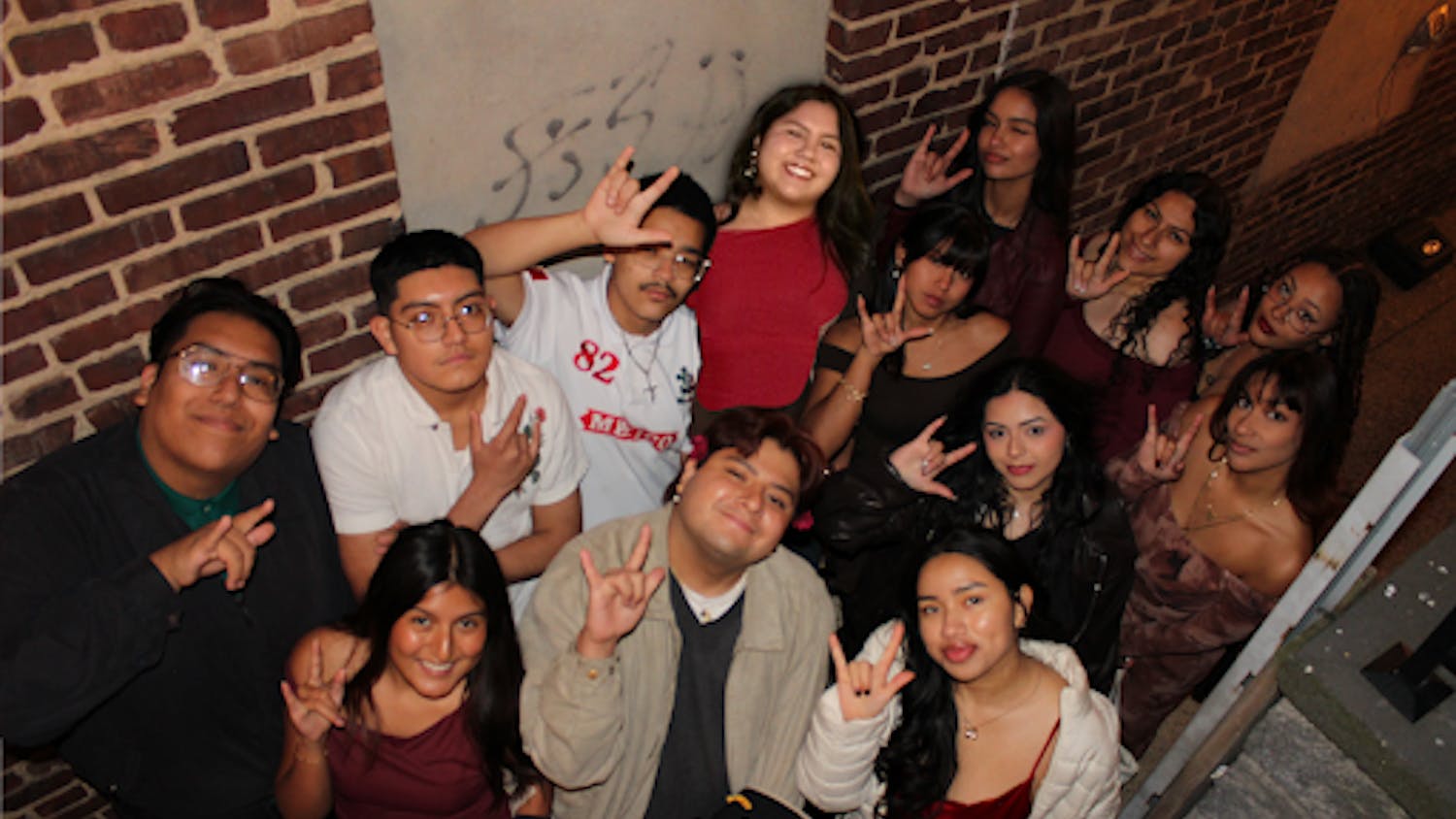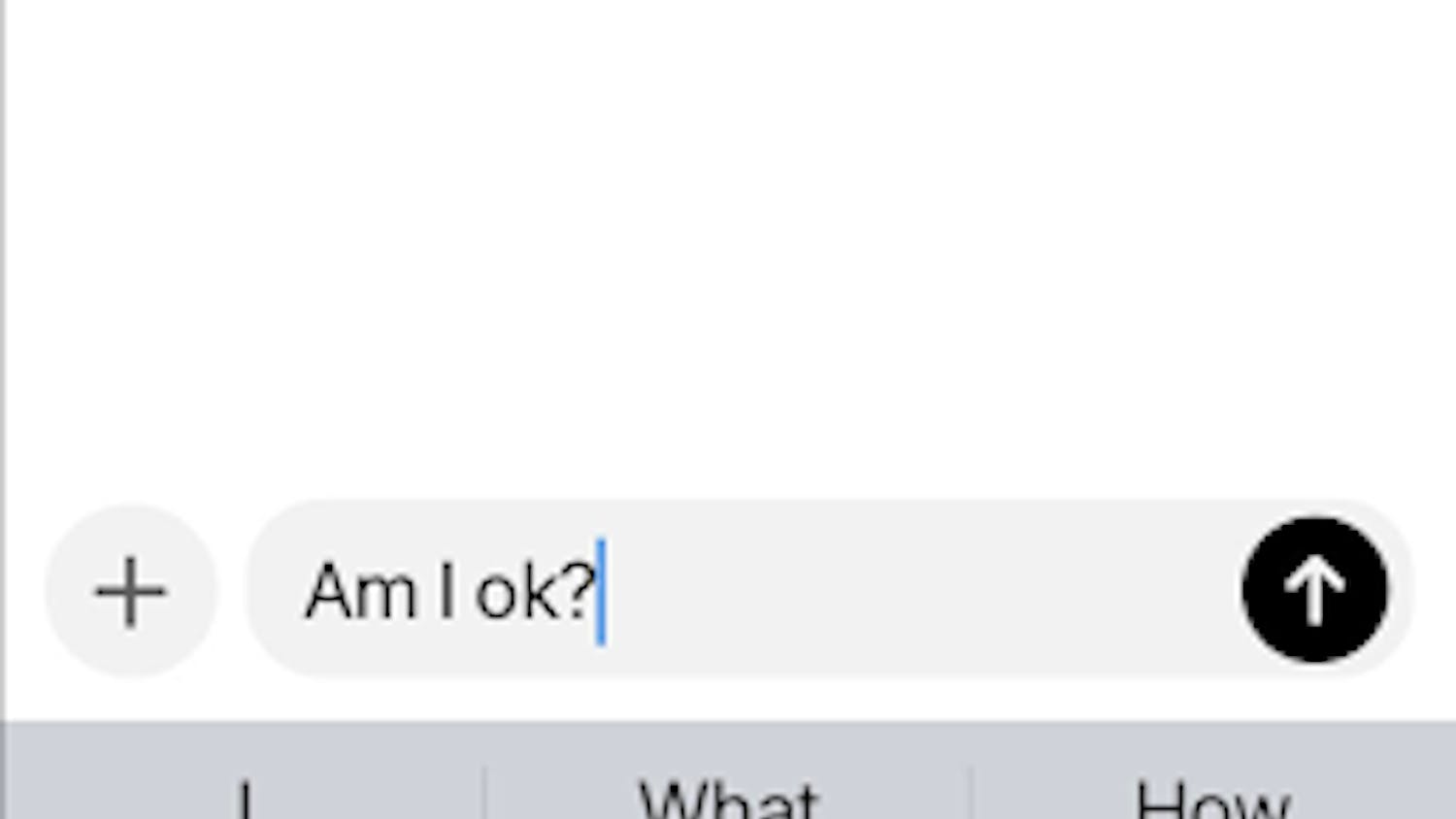I find it difficult to grasp the fact that, like any other day, Nov. 2 will come and go and that this vicious campaign for the presidency will actually end. It seems as if we have been living with it forever, watching it, breathing quick and biting our nails. It seems strange that we will have to deal with the realities of a conclusion.
A mere 13 days remain until Nov. 2 and the end of the excruciating race. Polls put the two candidates, incumbent George W. Bush and his opponent, Massachusetts Sen. John F. Kerry, in a statistical deadheat. Barring some truly shattering revelation in the next two weeks we should similarly cruise into Election Day - with no predictable outcome, prepared for a long night of vote counting.
The candidates were given their final chance to speak directly to the American public in last Wednesday's debate, the third of the three matchups between the candidates - it is said that Kerry won all three handily. While I would hesitate to use such words as 'win' or 'lose,' I will say Kerry remained unmistakably composed throughout all three while, at best, the president's performance was uneven.
The first debate, hosted by the University of Miami in Coral Gables, Fla. and focused on matters of foreign policy, found the president stammering and scowling, pressed up against the ropes by the master debater Kerry.
National security was supposed to be the president's dominating issue and, roaring out of the late-August Republican National Convention in New York City, the first debate was supposed to be the last nail in the senator's coffin. It was not. Kerry quickly had the president on the defensive, calling him out on his startlingly one-dimensional view of the war on terror. "The president just said something extraordinarily revealing and frankly very important in this debate," Kerry said. "In answer to your question about Iraq and sending people into Iraq, he just said, 'The enemy attacked us.' Saddam Hussein didn't attack us. Osama bin Laden attacked us. Al Qaeda attacked us."
The second debate, a town hall affair held at Washington University in St. Louis, saw a revitalized Bush spitting fire at his opponent, cutting off moderator Charles Gibson after Kerry accused the administration of going alone into Iraq. "You tell Tony Blair we're going alone," Bush said. "Tell Tony Blair we're going alone. Tell Silvio Berlusconi we're going alone.
Tell Aleksander Kwasniewski of Poland we're going alone. There are 30 countries there. It denigrates an alliance to say we're going alone, to discount their sacrifices. You cannot lead an alliance if you say, you know, you're going alone."
Later, the president scoffed - raising his boyish brow at Gibson, "Need some wood?" - at Kerry's assertion that Bush had received $84 in tax credit from a timber company. However, he seemed to have forgotten that he does, in fact, own part interest in a limited-liability company that grows trees for commercial sales. Bush was all bombast. Kerry was a wall.
Kerry came into the third debate, held at Arizona State University in Tempe, Ariz., secure in his ability to stand up against his opponent. Domestic policy, the Senator's strong suit, was to be the order of the night and Kerry made his confidence clear from the outset, addressing the president directly before fielding his first question from moderator Bob Schieffer. "Mr. President, I'm glad to be here with you again to share similarities and differences with the American people."
The third debate presented, perhaps, Bush's most solid performance. He matched wits with Kerry, held onto his composure, though still could not best the Senator. The debate brought the president's biggest gaffe as well as some of his most stirring oratory.
The former came as he responded to a Kerry assertion with his syrupy southern smarm, "Gosh, I just don't think I ever said I'm not worried about Osama bin Laden. It's kind of one of those exaggerations."
As a matter of fact, it was not an exaggeration - in a March 2002 press conference, the president is quoted as saying, "Well, as I say, we haven't heard much from him. And I wouldn't necessarily say he's at the center of any command structure. And, again, I don't know where he is ... I truly am not that concerned about him."
Bush's strongest moment came when describing the role of his faith in policymaking decisions. "My faith is ... very personal ..." he said, "but when I make decisions, I stand on principle and the principles are derived from who I am ... I believe that God wants everybody to be free. That's what I believe. And that's been a part of my foreign policy. In Afghanistan, I believe that the freedom there is a gift from the Almighty. And I can't tell you how encouraged I am to see freedom on the march."
However, the notion of freedom sprouting from the blood spilled by a foreign army seems like a mixed metaphor, typical of the president's explicitly militarized view of the world. He speaks of "armies of compassion," without thought, not seeming to understand the terror implicit in such a contradiction of terms.
With the last debate come and gone, the campaign has turned into a ground war as both camps try to find those incredibly elusive undecided voters. There seem to be very few of those now, concentrated in a handful of states now being blitzed by the candidates - Wisconsin, Minnesota, Iowa, Missouri, Ohio, Pennsylvania, Florida, as well as our own beloved New Jersey - a chess match of enormous stakes, growing more and more vicious with each passing day.
The President visited New Jersey on Monday, invoking the ghosts of Sept. 11, lashing out bitterly at Senator Kerry.
The Bush team seems only able to trot out old stereotypes and labels, such nasty expressions as "Massachusetts Liberal" to send the chills up the spines of whatever independent voters still remain in these precious final days. They hope to see a nation galvanized by phantoms and specters.
Kerry denounced the ease of such tactics during the debates, arguing that the problems this nation faces are ones that cannot be looked at in the stark terms the Bush people try to cast them in - war on terror, axis of evil, big government, no mistakes, with us or against us - but, instead, are infinitely more nuanced.
Such pleas for decency and substance will undoubtedly be ignored, not only by the Republicans, but also by the Democrats, in these last days. We seem destined to wallow in mud.
So for now? We sit on our hands and wait. I, for one, can barely take it anymore - I eat the polls, I devour the day's sound bytes. I want it to be over, but it still seems too immensely distant. I can't imagine coming to terms with the reality of it until that very day, driving to the polls among the clutter of fallen leaves, sealing myself in the voting booth, watching the returns trickle in all night, pacing and neurotic. You might expect me to live in almost feverish fear that those chants I hear on TV so often - four more years, four more years! - will become reality, but I don't; the severe truth of the election seems too unreal for such nightmarish fits of dementia. I have accepted the quiet wait.






